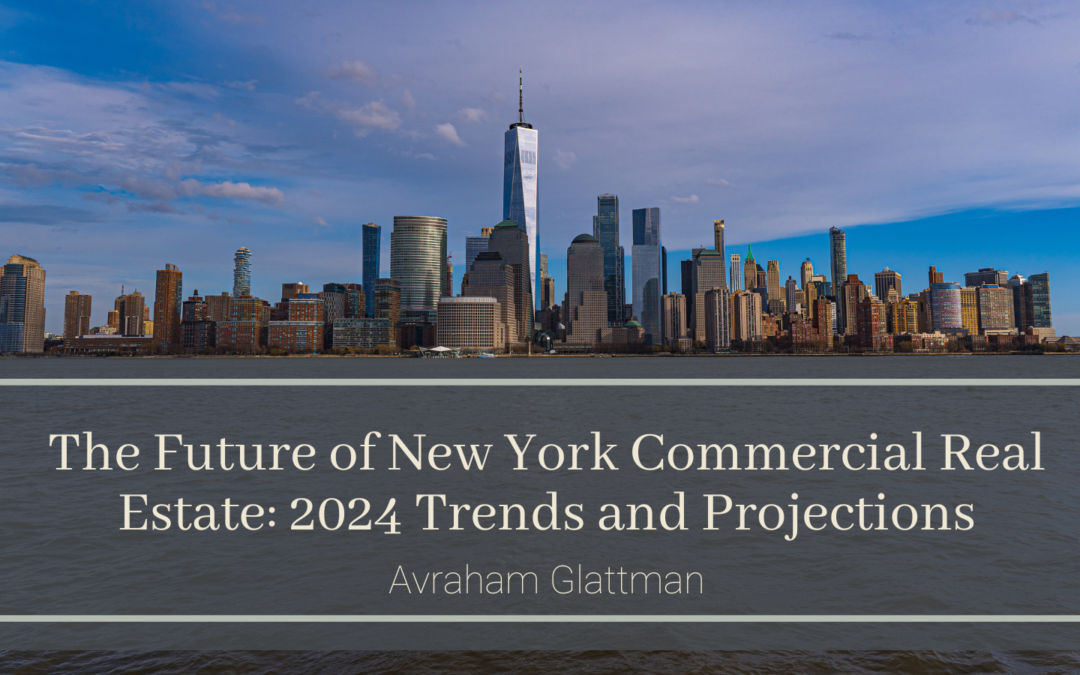As the epicenter of innovation and commerce, New York City’s skyline has always symbolized ambition and prosperity. However, the landscape of commercial real estate in this bustling metropolis is in a state of evolution. 2024 heralds a new chapter in NYC’s property market narrative, shaped by various trends and projections that promise to redefine the industry’s future.
Remote Work’s Impact:
The seismic shift toward remote work influences commercial real estate dynamics. Companies have reevaluated their office space needs, opting for flexible arrangements and hybrid models. This shift isn’t a death knell for traditional offices but rather a catalyst for reimagining workspaces. Expect a surge in demand for adaptable, tech-equipped environments that foster collaboration and creativity when teams convene.
Adaptive Reuse and Repurposing:
NYC’s commercial real estate landscape is witnessing a trend of adaptive reuse and repurposing of spaces. Unused retail areas may find new life as experiential stores, co-working rooms, or residential units. The key lies in reinventing spaces to meet the evolving demands of consumers and companies alike.
Sustainability and Wellness:
With a heightened focus on sustainability, commercial properties are undergoing a green revolution. Buildings strive for LEED certification, integrating renewable energy sources, and implementing wellness-focused designs. Tenants and investors alike prioritize environmentally conscious properties that promote health and well-being.
Tech Integration:
Technology remains a driving force in shaping the future of commercial real estate. Smart buildings with IoT sensors, AI-powered analytics, and advanced security systems are becoming the norm. These innovations enhance operational efficiency and cater to tenants’ demands for seamless, connected experiences within their work environments.
Neighborhood Transformation:
As preferences for live-work-play communities intensify, neighborhoods across NYC are witnessing revitalization efforts. Previously overlooked areas are reimagined as vibrant hubs, drawing in residents and businesses seeking a blend of convenience and culture. This transformation diversifies investment opportunities beyond traditional hotspots.
Investor Behavior and Capital Flow:
Real estate’s capital landscape is evolving. Investors are diversifying portfolios exploring opportunities in proptech, PropCo/OpCo structures, and fractional ownership models. Additionally, the growing interest in investments in ESG (Environmental, Social, and Governance) further influences capital allocation decisions.
Regulatory and Policy Changes:
Government policies and regulations are pivotal in shaping the real estate market. NYC’s policymakers continue to address issues related to zoning laws, affordable housing initiatives, and tax incentives, impacting developers, investors, and tenants alike.
The Return of Tourism and Hospitality:
The anticipated resurgence of the post-pandemic tourism and hospitality industries bodes well for NYC’s commercial real estate sector. Hotels, restaurants, and entertainment venues are expected to recover gradually, attracting investors looking to capitalize on the city’s appeal as a global destination.
In navigating this dynamic landscape, stakeholders in NYC’s commercial real estate must remain adaptable and forward-thinking. Collaboration between developers, investors, policymakers, and community stakeholders will be crucial in shaping a resilient and vibrant future for the city’s real estate market.
The future of New York City’s commercial real estate in 2024 is defined by adaptability, sustainability, innovation, and community-centric development. Embracing these trends and projections will redefine the skyline and ensure NYC remains a beacon of opportunity and progress in the global real estate arena.
